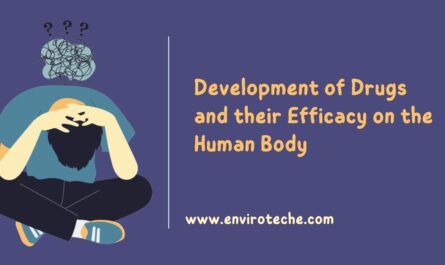
Eco Anxiety and Human Health
Tayyaba Munir1
1International Islamic University Islamabad
Introduction
The primary indicator of human wellness is a resilient climate.” Change in the climate has a detrimental effect on psychological health by causing mental distress, with some people suffering from sadness, sorrow, and disappointment. The issue of environmental stress and its influence on people’s wellness is a vital field of study that is currently receiving attention.
The term “eco-anxiety” refers to the long-term anxiety, concern, or distress caused by the dire state of the environment, which includes worries regarding climate change, loss of biodiversity, contamination, and other issues related to the environment. It is referred to as a “chronic fear of environmental doom” by the American Psychological Association. Eco-anxiety describes the overwhelming worry and fears individuals experience in response to the escalating ecological challenges our planet faces. While the focus is often on the environment, it is essential to recognize that eco-anxiety can have profound implications for human health as well.
The Relationship between Eco Anxiety and Human Health:
Mental Health Issues: Living in a period of extreme weather, forest destruction, loss of biodiversity, and numerous other environmental emergencies can have an enormous effect on our psychological well-being. Continuous contact with disturbing news, terrible forecasting, and experiencing the effects of the destruction of the environment might give rise to thoughts of despair, sadness, and stress. Eco-anxiety has been linked to depression, post-traumatic stress disorder (PTSD), and various other psychological problems, according to research.
Physiological Impacts: The association between environmental depression and physical well-being is complex. Environmental stress can cause discomfort such as migraines, insomnia, tense muscles, and digestive problems. Furthermore, ecosystem degradation and contamination are directly damaging to humans.
Intergenerational Effects: Ecological stress influences not just individuals but it additionally has consequences throughout generations. Uncertainty regarding the planet’s future and the security of the next generation can have an impact on reproductive health decisions, such as the decision to have children. The emotional burden of environmental concerns may jeopardize the capacity of parents to nurture an atmosphere of encouragement and affection for their children.
Addressing Eco anxiety and Promoting Human Well-Being:
1. Education and Awareness: It is critical to spread understanding concerning the root causes and effects of environmental anxiety. Delivering precise knowledge about environmental problems, emphasizing beneficial initiatives, and highlighting the significance of group efforts may all contribute to reducing nervousness and building a feeling of empowerment.
- Approaches to deal with stress: Having efficient ways to cope is critical for people who are worried about the environment. Performing physical activity meditation, and interacting with the environment are all self-care behaviors that can assist to lower anxiety while boosting one’s mental state. Seeking help from relatives, friends, or medical experts is additionally an effective means to express fears and seek comfort.
- Taking Action: Expressing environmental anxiety through action that is beneficial may bring a feeling of motive and enlightenment. Participating in sustainable practices, contributing to environmental agencies, and urging for reforms in policy are all practical ways to make a contribution towards improvements and ease thoughts of despair.
- Building Resilience: The concept of resilience is essential for dealing with eco-anxiety and its influence on human health. Being resilient involves developing psychological endurance, the ability to adapt, and an awareness of how individual actions, when integrated with collective efforts, can have an impact. While the difficulties are substantial, we must recognize that advancement can be achieved when we work together.
Conclusion
Eco anxiety influences not only our common concern with the environment, but it additionally has serious consequences for the well-being of humans. In an era in which the significance of psychological wellness discussions is at a record-breaking high and global warming conversation has become unavoidable, it seems to make obvious to keep investigating the two together. Climate change is quickly posing a burden on global health systems, not only because of the physical harm resulting from natural disasters, but as well as because of the impact it has on those on the frontlines. Eco Anxiety
Reference
From anger to action: Differential impacts of eco-anxiety, eco-depression, and eco-anger on climate action and wellbeing. (2021, March 19).Eco Anxiety
Marcus, A. (2019, September). Eco anxiety: Mental Health Impacts of Environmental Disasters and Climate Change. Eco Anxiety
Baudon, P., & Jachens, L. (2021, September 13). A Scoping Review of Interventions for the Treatment of Eco-Anxiety.
Check Other Schlorships:
